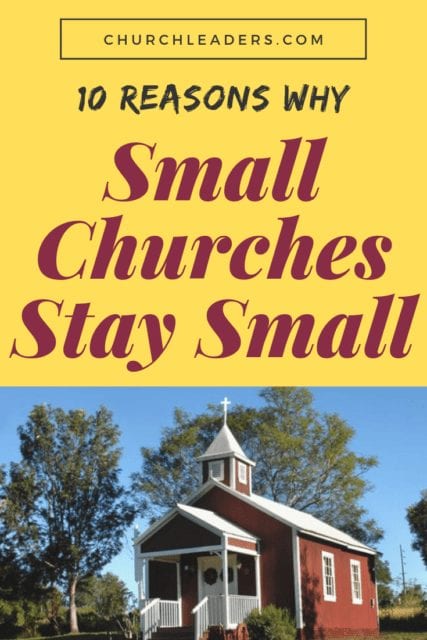4. Not trusting the leaders.
A phenomenon which I’ve seen in small churches and never in a large one occurs at the monthly business meetings, which incidentally, is also a custom a lot of growing churches have found they could do without. (They choose excellent leadership for the deacons, finance committee, and other key groups, and ask them to keep the congregation on course.)
In small-and-determined-to-stay-small churches, the treasurer passes out the monthly financial statement, which accounts for every penny spent this month. The discussion centers on why 35 cents was spent for call forwarding and 2 dollars for paper for the office.
The director of the vacation Bible school, the Sunday school director, the children’s choir leader, and of course, the pastor—all are frustrated that the congregation doesn’t trust them with 20 bucks, let alone 200, for some task.
The small-and-determined-to-stay-small church is far more concerned about the dollars and cents in the offering plate than in the lost souls in the community.
“I want to know what that revival cost the church,” said a disgruntled deacon in the monthly meeting. The pastor rose and cited a figure.
“And what did the church get out of it?” the plaintiff said. “Only one person saved, and a child at that. Poor stewardship of our resources, if you ask me.”
With that, another deacon walks to the front and takes something out of his pocket. He writes in his checkbook, tears out the check, and hands it to the treasurer.
“Gentlemen,” he says, “that one child that was reached is my son. And he’s worth every penny of it.”
Ttiny-and-deadset-on-remaining-tiny small churches would never step out on faith and do something so bold as to have an aggressive evangelism campaign to reach the lost and unchurched of their community. And if they did, unless their mindset changes, they would then harass their leaders into the grave demanding an accounting of every dime spent.
When the pastor search committee announced plans for the candidate to spend the following weekend at their church, a member stood to raise a question. “That’s not long enough for us to get to know him. How do you expect us to be able to vote on him if we only have a weekend with him?”
Another member stood. “May I respond to Mr. Alan? We can’t get to know him well enough in a weekend to make this kind of decision. That’s why we have elected good leaders for this search committee. Let’s trust them.”
Elect good leaders and trust them to do their work. It’s a faithproof system for growing a church.












